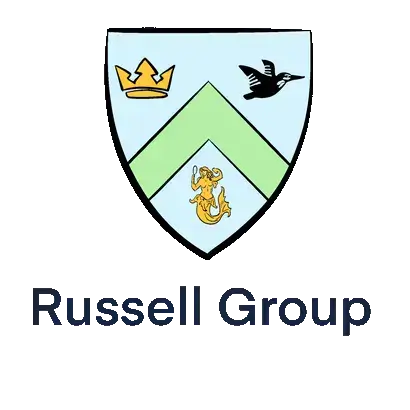St Dunstan’s College tutors
Rémy - Check availability
7 Plus, 8 Plus, 11 Plus, 13 Plus, Other School Entrance & English
R my is an outstanding, full-time tutor and role-model who has a proven track record of success with admissions to top London schools...
Online tuition
Primary education (2013)
School entrance experience




St Dunstan’s College entrance guide
Founded in the 19th century, and becoming co-educational in 1994, St Dunstan’s College is a recent winner of prestigious national awards and has become a popular choice for parents in South-East London. The school is housed on one site in Catford and has over 1000 day pupils aged between 3 and 18. A-level results are strong, and leavers go on to a wide variety of universities both at home and abroad. Traditional entry points to the school are 4+, 7+, 11+ and 16+; occasional places are also available in other year groups. Below you can find more information about these entry points and also meet our tutors who have experience helping pupils seeking entry to St Dunstan’s.
Open Days and Events at St Dunstan's College
There are a number of open days and events at St Dunstan’s College, including virtual events for those unable to attend in person (recordings of these are available on the website). A whole-school open day is held in the Autumn Term, and specific open events and taster sessions are also held for entry to Junior school, Senior School and Sixth Form. All these events are bookable via the school website.
4+ Entry to St Dunstan's College
Following registration, an assessment day for 4+ entry into St Dunstan’s College takes place in the Autumn term. This involves maths questions, shape problems and word games, and children are assessed in small groups. Parents are also invited to the school during this day to meet staff from the Junior School. Offers are sent out before Christmas, and must be accepted promptly in January. As well as 4+ entry, 3+ entry to St Dunstan’s College is also possible. This is undertaken via the child’s current nursery and in liaison with their key worker.
7+ Entry to St Dunstan's College
Following registration, an assessment day for 7+ entry into St Dunstan’s College takes place in the Spring Term when children are in Year 2. This is another popular entry point and is oversubscribed. During the assessment day, children will sit computer-based English and Maths tests and are also observed in class and in their interactions with other children and with staff. Additionally, reports are requested from the child’s current school. Following the assessment day, offers are sent out by the end of January and must be accepted promptly.
11+ Entry to St Dunstan's College
St Dunstan’s is unusual in offering an ‘assessment preparation programme’ for prospective 11+ pupils. This consists of three Saturday mornings in the Autumn term of Year 6. These assessment mornings cover the two-stage entry process to the school. Please note that parents are charged for this and it does not guarantee entry. 11+ candidates must sit the ISEB pre-test in the Spring term of Year 6, and then also sit school-based tests at St Dunstan’s the following week. These tests consist of critical thinking tasks, both in-lesson (so verbal responses are observed) and written tests including comprehension and essay-based work. The second stage is an interview, and offers are sent out shortly after this. 11+ pupils who have registered also have the opportunity to participate in an ‘experience day’ at St Dunstan’s, although this is not part of the assessment process.
16+ Entry to St Dunstan's College
Candidates for 16+ entry to St Dunstan’s College must follow a two-stage process. The first stage is an assessment which is taken online and includes problem-solving and essay-based work, and the second stage is an interview with subject-specific members of staff. Offers are made promptly and are conditional on GCSE results.
Scholarships and Bursaries at St Dunstan's College
Scholarships are available at St Dunstan’s College at 11+ and 16+, with occasional awards being made at 13+. Candidates for academic scholarships at 11+ are decided on the basis of performance in the entrance assessments; selected pupils will then be invited for interview. These academic scholarships are worth up to 25% fee remission. 11+ scholarships are also available in Art, Drama, Music and Sport; there is an application process for each of these and they offer between 10% and 25% fee remission. For each of these ‘co-curricular’ scholarships, an assessment day takes place in the Spring term.
At 16+, ‘Diploma Scholarships’ are available in Art, Drama, Music, Sport, Design Engineering and Academic fields. These are worth 10% fee remission. Applications must be made at the same time as an application to the Sixth Form, with the exception of the Academic Diploma Scholarship, for which candidates are selected following their performance in the entrance exams.
Bursaries are available at St Dunstan’s College for families who would otherwise be unable to afford the educational opportunities offered. Bursaries, which are means-tested, are available at 11+ and 16+ entry only and are worth between 10% and 100% of fees.





